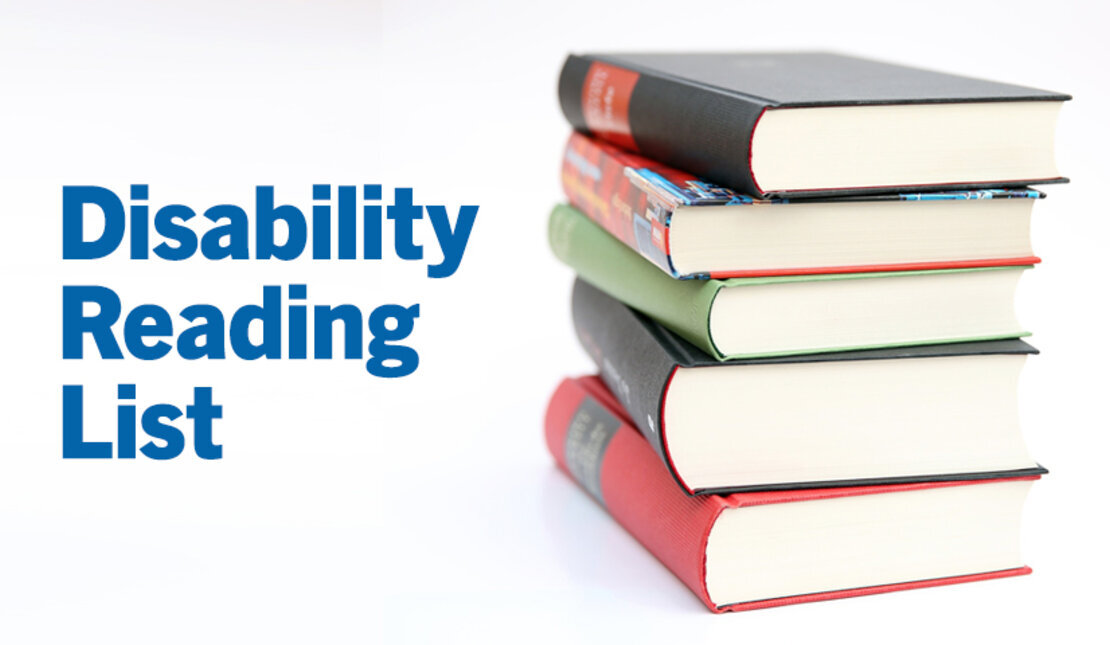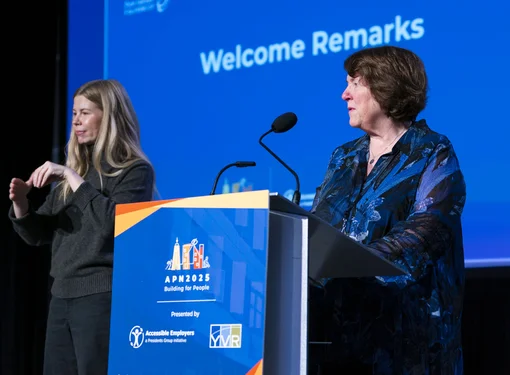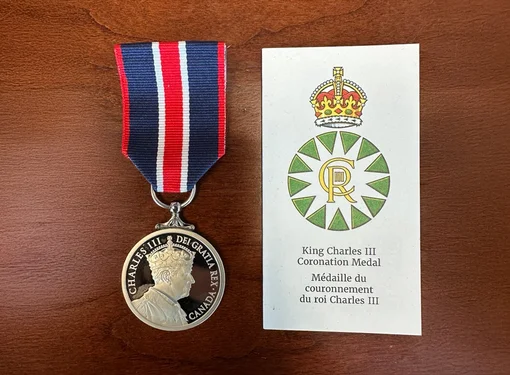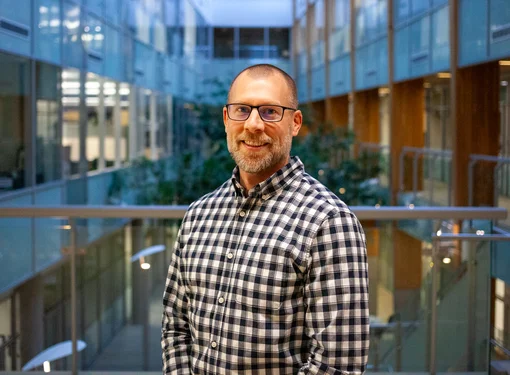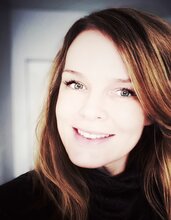Disability Books for Your Summer Reading List
With summer just around the corner, the Rick Hansen Foundation (RHF) is pleased to present our warm weather reading list for your leisure time. The following books are written by authors with disabilities or are about disabilities, each offering unique stories and insights into lived experiences that help further our understanding and appreciation of diverse perspectives.
Every Cripple a Superhero – Christoph Keller
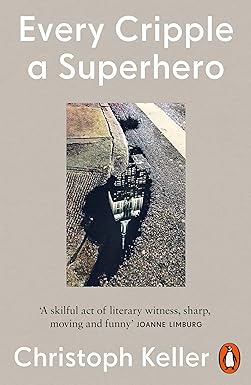
This gem of a book is beautifully structured, featuring short stories about the author’s experience navigating restaurants, museums, and planes and visiting an award-winning new building with an accessible entrance in a far-away location. Keller’s superb writing, punctuated with humour and grace, is interwoven with poems, an absurd fictional piece about bugs, and the author’s abstract photographs of puddle-filled curb cuts that began as a documentation of neglect but evolved into art. Diagnosed at 14 with Spinal Muscular Atrophy, Type Three, the “happiest one” because it progresses slowly, Keller began using a wheelchair part-time by 25 and full-time by 45. “There were two of me: Walking Me. Rolling Me,” he wrote. This book highlights the many worlds that exist around us, and how meaningful accessibility serves as the equalizer into the portals of experiences that make up a rich life.
Against Technoableism – Ashley Shew
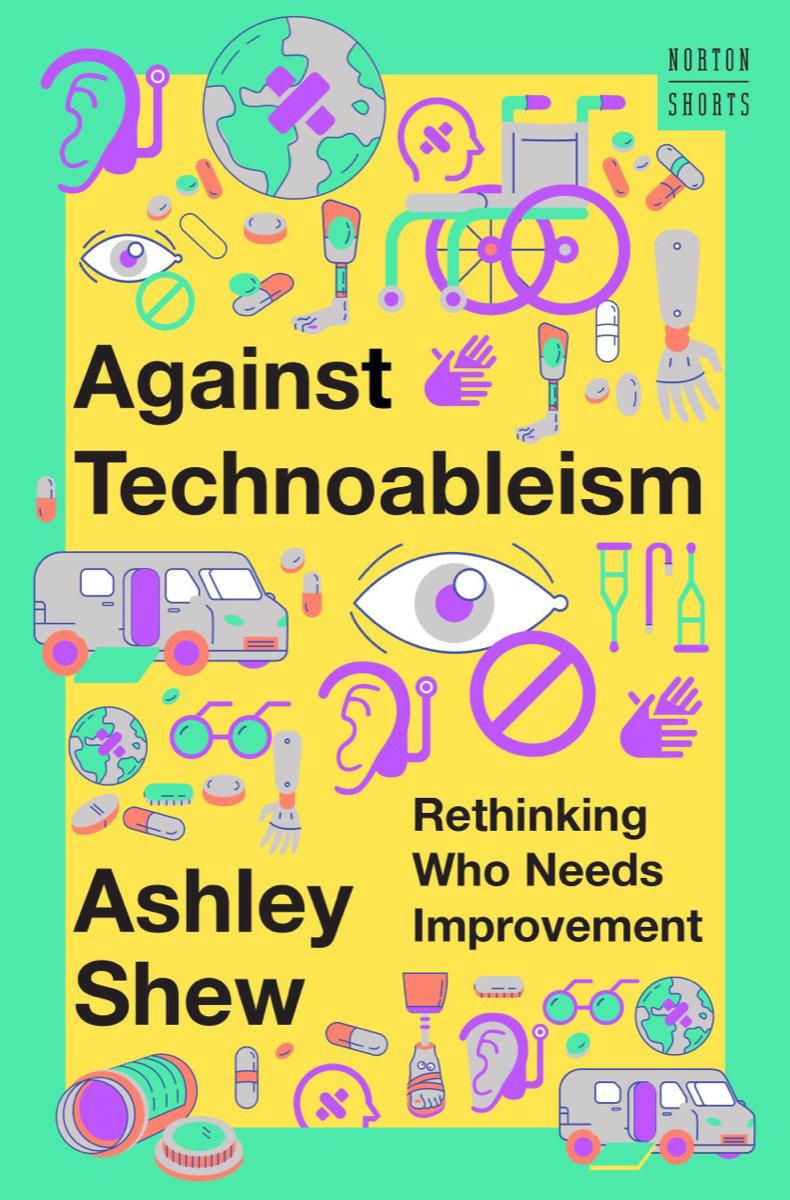
Ashley Shew, a bioethicist and professor, describes herself as a “hard-of-hearing chemo-brained amputee with Crohn’s disease and tinnitus.” Shew experiences what many with visible disabilities endure – being called an “inspiration” while doing everyday tasks such as grocery shopping. Her book, Against Technoableism, recognized by BookRiot as one of the Ten Best Disability Books of 2023, explores the idea of creating better narratives and more accessible futures by challenging “technoableism,” which Shew calls the harmful belief that technology is the “solution” to disability. The book considers mobility devices, medical infrastructure, neurodivergence, and the intersection between race and disability. According to Shew, the future is inevitably disabled due to factors like climate change, emerging diseases, and aging populations. She advocates for viewing disability as a unique skill set that equips humanity to navigate an increasingly complex world.
Beautiful People – Melissa Blake
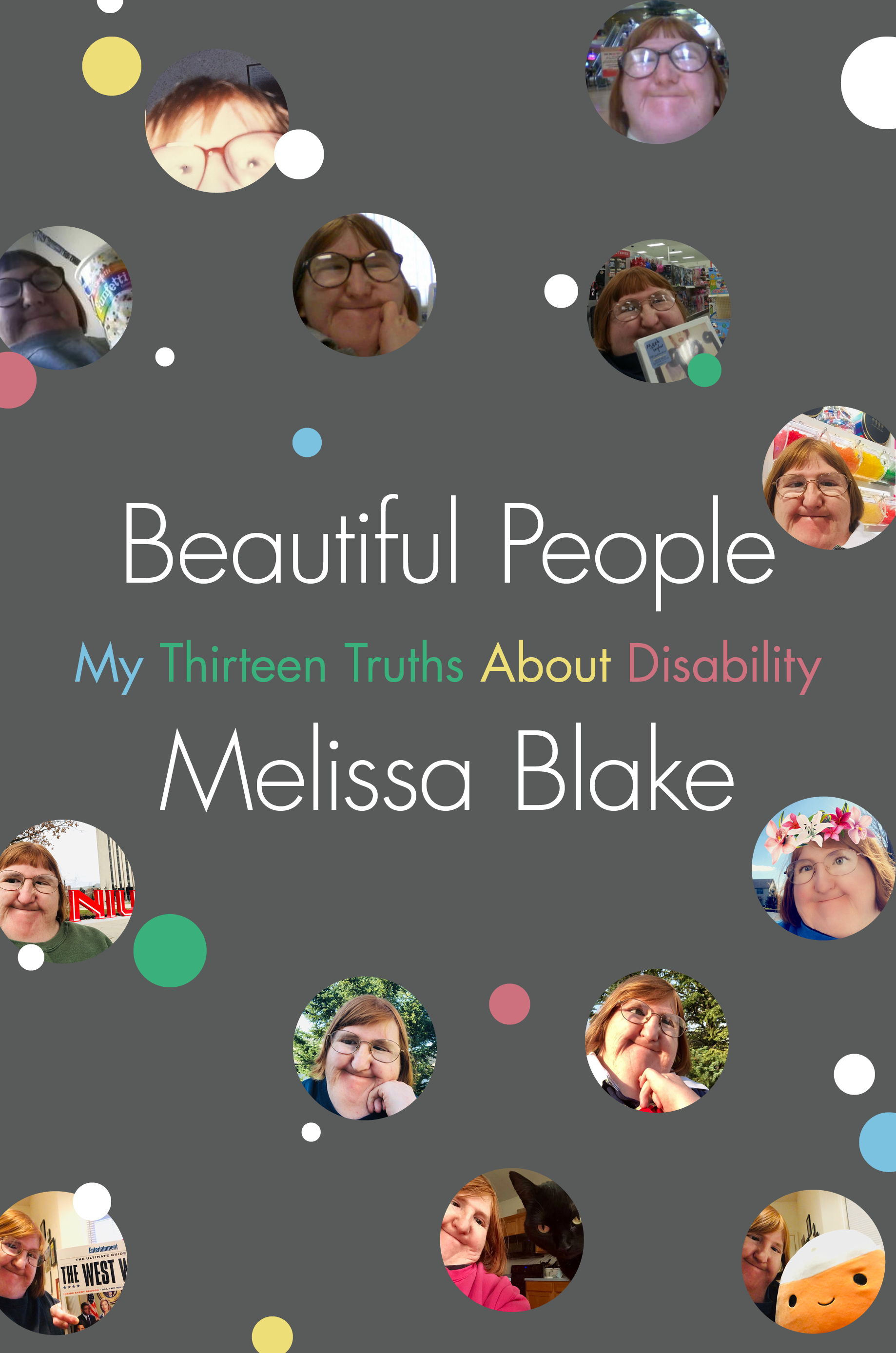
Blake is a writer, activist, and social media presence who has been trolled for her appearance. In her memoir Beautiful People, she shares her experience living with Freeman-Sheldon syndrome. “When people mock how I look, they’re not just insulting me. They’re insulting all disabled people. We’re constantly told that we’re repulsive and ugly and not good enough to be seen. This was me pushing back against that toxic, ableist narrative,” Blake wrote in a social media post that went viral. In Beautiful People, she shares her truths about disability, sharing stories about some of her heroes of the disability movement in the United States, and how language and culture are often discriminatory.
The Framed Women of Ardemore House – Brandy Schillace

Schillace makes her fiction debut with her cozy mystery book that follows an autistic and hyperlexic book editor named Jo Jones in New York who inherits an estate in the English countryside. The town groundskeeper is found shot to death on her newly acquired property; Jo finds herself in possible danger while also being a potential suspect. Schillace, a neurodivergent medical historian, infuses her own lived experience into Jo’s unique way of interpreting the world around her. This nuanced portrayal of neurodiversity adds depth to the character, which, on its own makes the book worth the read, even though some might agree the story is less of a thriller and more police procedural in its telling.
True Biz – Sara Nović
TRUE BIZ (adj./exclamation; American Sign Language): really, seriously, definitely, real-talk
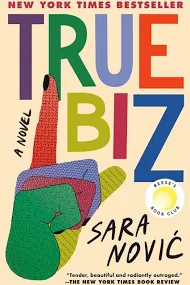
This novel, set in a boarding school for the D/deaf, follows a student, her friends, and her teacher through a year of romantic, political, and personal drama. The student, Charlie, was born deaf and had a malfunctioning cochlear implant installed when she was three. Her friend, Austin, is Deaf, as is most of his family. His parents have a new baby girl who can hear, which sets off ripples of complexity for him. February, the school’s headmistress, is CODA (child of deaf adults) and fights to keep the school running despite its threatened closure. True Biz is currently being adapted into a television show where, hopefully, the characters will be further developed, and the story will have a clearer plot.
Brooke Ellison – Look Both Ways
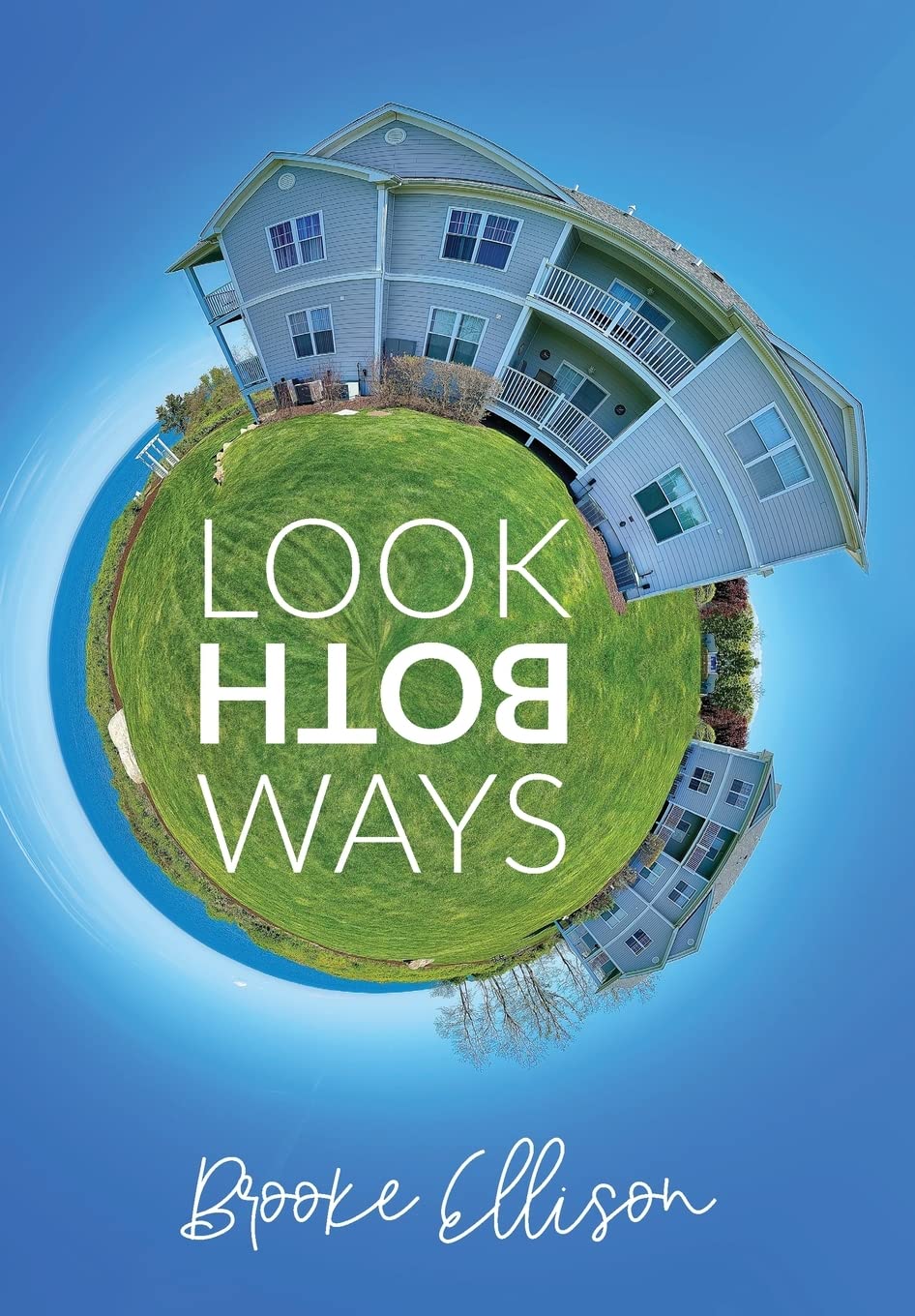
As a well-known disability advocate, Ellison said she didn’t need to tell another story about the events of her life. While Look Both Ways is still an account, those events provide the framework for building deep and personal understandings. Ellison explores identity, ethics, inclusion and hope, imparting universal truths about the resilience inherent in refusing to be defined by a single event in her life. Ellison’s first book, Miracles Happen: One Mother, One Daughter, One Journey, was published after a decade of living with quadriplegia. Ellison acknowledged that she “didn’t know what it meant to be disabled or how to understand myself as a woman with a disability.” However, with the passage of time and the wisdom gleaned from lived experience, Ellison’s reflections in Look Both Ways attain a depth and nuance reflective of years of processing and maturity. For those interested in learning more about Ellison, RHF wrote a tribute in her honour following her passing earlier this year.
